Image by Joshua Chaplinsky
“I’ve never been much of a history buff,” a friend said to me while discussing his recent visit to Hiroshima, Japan. “But it really puts a lot of things in perspective.”
Here's some of that perspective: Hiroshima, Japan, was ground zero for the first atomic bomb dropped in combat by the United States on August 6, 1945. Three days later, the second and last atomic bomb used in combat decimated Nagasaki. Thousands of lives, incinerated in an instant. I've seen some bad days in my life, but I've never seen one quite like that.
I’ve actually been studying World War II history since I was very small, in fact because I wanted to get a little perspective on something. I wondered why some thugs in my hometown smashed the windows of the synagogue to which my mother, brothers, and I belonged. Why they spray painted bloody Swastikas across its walls. Why they destroyed the only Jewish temple in my predominantly Catholic town.
I began my studies with the Holocaust, for obvious reasons; through the years I branched out to the rest of the war, reading dozens of books on the subject. From the battle plans of Alllied generals, to the indoctrination of child Nazis, to the slaughter of innocent babies in China, I’ve read it all, and I've tried to understand.
I haven’t succeeded. I’ll never understand. Not completely.
But I’ve read some books that stick with me, even now. These books – once they get a hold of you, they may not let you go. Consider yourself warned.
The Holocaust
Six million people dead. Six million people – Jews, mostly, but also gypsies and Soviets. Old and disabled. Political dissidents and gays. All gone, vanished into the ashes that spewed from the chimneys of Hitler’s crematoriums.
To speak of the Holocaust without mentioning Anne Frank’s The Diary of a Young Girl or Elie Wiesel’s Night would be negligent. Beginning your reading of its history anywhere other than there would be ill-advised. But today I want to share other books, other stories. Other survivors.
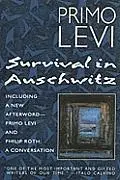 Survival in Auschwitz – Primo Levi
Survival in Auschwitz – Primo Levi
Years ago I found Levi’s memoir tucked away on a bookshelf earmarked for my husband’s tattered college textbooks. I sat down, and began to read, and I didn’t stop until it was over. Levi’s tale is that powerful. He was twenty-five when he was deported to Auschwitz in 1943. Old enough to truly comprehend the horror of the Holocaust; strong enough to survive, to live to tell the tale. He documents his journey with painful honesty, brutal detail, and even, sometimes, humor. Life went on amid the trials of even the most notorious death camps, and Levi’s book is proof that among paralyzing darkness, there’s always a flicker of light.
![]() Maus I, Maus II, and Meta Maus – Art Spiegelman
Maus I, Maus II, and Meta Maus – Art Spiegelman
Spiegelman’s graphic novels depicting his father’s life during the Holocaust are terrifically haunting. In his world, cats are huge, imposing Nazis, terrorizing the tiny, helpless mouse Jews. The artwork is brilliant, and his words match. But there’s one image in particular that I’ve never been able to forget. If I close my eyes right now, I still see it. A mouse, head thrown back, mouth opened wide in a silent, heart-breaking scream. To see that face is to understand despair on a bizarre, brand new, unimagined level. Once you see it, like me, you won’t forget it.
The European theater
D-Day. Normandy. The Blitz. The Bulge. All keyword searches for the vast European battles of World War II. An entire continent flipped sideways for nearly a decade as Hitler, Mussolini, and their bloodthirsty henchmen ravaged an entire generation. Once again, I’m skipping some obvious choices (for comprehensive histories of the war, turn to Herman Wouk’s fiction and Stephen Ambrose’s non-fiction) in order to point you to other books. Different books. Books you might not think of, but which have a pretty heady impact.
![]() Slaughterhouse Five – Kurt Vonnegut
Slaughterhouse Five – Kurt Vonnegut
Want to learn about the horrors of war from someone who was there? Read Slaughterhouse Five. As a POW, Vonnegut survived the Allied firebombing of Dresden, Germany. The city was destroyed in an instant. Civilians died of asphyxiation in their living rooms when the fires sucked all the oxygen from the air. Afterward, a POW in a dead city, Vonnegut was forced to clean up the wreckage, digging through rubble and bodies to bury the dead. Who cares if the book’s fiction? It’s blunt, it’s brutal, and it’s as honest as it gets. And it’s Vonnegut. Enough said.
![]() On Hitler’s Mountain: Overcoming the Legacy of a Nazi Childhood – Irmgard A. Hunt
On Hitler’s Mountain: Overcoming the Legacy of a Nazi Childhood – Irmgard A. Hunt
This is a new one for me. I just finished a first read of it a few weeks ago, in fact. Hunt’s memoir is the story of her early years during the height of the Third Reich. She lived in the mountains of Berchtesgaden, the site of Hitler’s famous Alpine retreat. Raised into an indoctrinated world of Hiel Hitlers, Hunt and her family were completely ignorant of Hitler’s Final Solution. Jews didn’t even exist in her world. It’s a creepy take on a life within one of the most notorious regions, and her story of meeting Hitler when she was a 3-year-old is chilling. Not all Germans were in on Hitler’s plan, a fact often lost on me when I was a child, and this book is a great reminder of that fact.
The Pacific Theater
It’s hard to think of the grisly battles of the Pacific without picturing the iconic image of the American flag raised during the Battle of Iwo Jima. But did you know that photo was actually staged? That a photographer hoped a picture of our flag raised over a Japanese-occupied island would galvanize a nation already weary of war. Flags of Our Fathers by James Bradley and Ron Powers is a key resource for that particular story. There are, however, other books about the Pacific. Books that talk about the swath of destruction left behind by Japanese Imperial troops in the early war years. That swath? It’s massive. Here are two books that talk about it.
![]() So Far from the Bamboo Grove – Yoko Kawashima Watkins
So Far from the Bamboo Grove – Yoko Kawashima Watkins
I was in fifth grade when our school librarian read this memoir to my class. Watkins was a young Japanese citizen living in North Korea during the outbreak of World War II. She and her family endured near-starvation and a constant threat of violent attack as they escaped an enemy country to get back to Japan. But what they found when they got home was even worse than what they left behind. War, devastation, rape, murder. It’s a terrifying reminder of the far-flung reach of any war, and an account of survival in the face of unbelievable circumstances. That it’s written for young readers hardly seems to matter. The story itself is all grown up.
![]() The Rape of Nanking – Iris Chang
The Rape of Nanking – Iris Chang
There’s some controversy behind this book. Written a couple decades ago, Chang details the absolute ravaging by Japanese solders of an occupied Chinese village at the start of the war. The story is graphic, horrific. Babies are tossed into the air and caught on the tips of bayonets. What’s sad, though, is that the controversy isn’t about the facts of the tales, but rather the motivations. Who cares about the motivations when babies are hanging from bayonets? This book was so horrific I couldn’t finish it. Me. The girl who’s read just about every Holocaust book there is. I had to put this one down, hide it away, but the stories I did manage to read have stuck with me anyway. There’s evil in this world, and The Rape of Nanking documents it. Regardless of motivation, regardless of anything, there’s evil in the world, and sometimes that’s all there is to it.
Perspective
Perhaps we all need a dose of perspective from time to time. Perhaps that's why I continue reading my World War II books.
Today is September 11, 2013, the twelfth anniversary of a very sad, very bloody, very catastrophic day. Evil showed its face that day, but so did heroism. So did greatness. Exactly like evil and heroism and greatness were in full display on a sunny December morning sixty years earlier when bombs rained down over Pearl Harbor, Hawaii.
We’re a nation at war again, and have been for a long time. But we, here in the United States? We have it easy, and our bad days don't even begin to approach the good days of the people in these books, and lots of people suffering around the world today. So maybe that's the perspective we need...or at least the perspective I need. And so I'll keep on reading. I hope you will too.

About the author
Leah Rhyne is a Jersey girl who's lived in the South so long she's lost her accent...but never her attitude. After spending most of her childhood watching movies like Star Wars, Aliens, and A Nightmare On Elm Street, and reading books like Stephen King's The Shining or It, Leah now writes horror and science-fiction. She lives with her husband, daughter, and a small menagerie of pets.
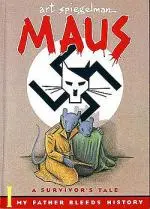 Maus I, Maus II, and Meta Maus – Art Spiegelman
Maus I, Maus II, and Meta Maus – Art Spiegelman
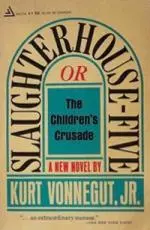 Slaughterhouse Five – Kurt Vonnegut
Slaughterhouse Five – Kurt Vonnegut
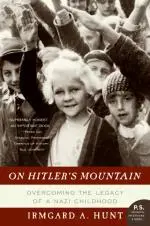 On Hitler’s Mountain: Overcoming the Legacy of a Nazi Childhood – Irmgard A. Hunt
On Hitler’s Mountain: Overcoming the Legacy of a Nazi Childhood – Irmgard A. Hunt
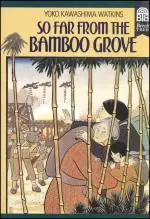 So Far from the Bamboo Grove – Yoko Kawashima Watkins
So Far from the Bamboo Grove – Yoko Kawashima Watkins
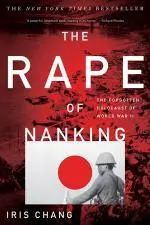 The Rape of Nanking – Iris Chang
The Rape of Nanking – Iris Chang








